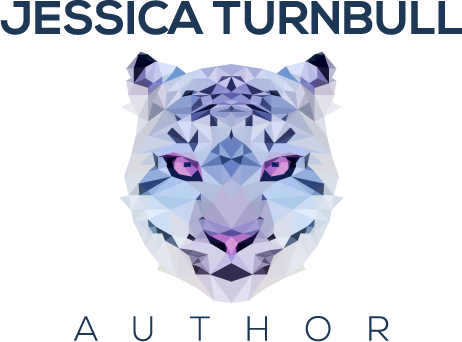Hi all!
Before we dive into this week's blog post I just wanted to say good luck to everyone participating in NaNoWriMo! It's my first time this year, and I hope to hit that 50K! My username is Jessica Turnbull If anyone wants to add me as a writing buddy. If you're unsure what NaNoWriMo is, it's National Novel Writing Month. You have the month of November to write 50K.
Anyway, on with the blog post!
Rejection is a big part of being an author.
Behind every book is a story of rejection.
Some authors decide to self publish after being unable to break into the traditional publishing world, which is what I'm also doing. This doesn't mean we gave up, we just decided to take things into our own hands. Some authors just decide to skip querying entirely to self publish.
Whether you've just started or are in the middle of querying, you aren't alone. Thousands of other people are going through the same thing.
Every single one has received that dreaded email in their inbox.
A rejection.
Rejection is normal, everyone gets rejections from literary agents and publishers, it's just a part of the publishing world. It doesn't mean your work is terrible, it just means that particular agent or publisher didn't like it.
But, rejection can help you improve.
After receiving a few rejections, you can look back over your query and first chapters and ask yourself a few questions.
Is my query strong enough?
Do my opening chapters pull in the reader?
How can I make this better for the next round of queries?
Those are all brilliant questions, as they can help you look at your work in a new light. Yes, your manuscript may not be perfect in your eyes anymore, but a fresh outlook can help you spot errors and plot holes.
Some rejections contain feedback from the person you submitted to. These are called personalized rejections.
A personalized rejection is a golden nugget for an author, as you can then see what needs improving. They may even tell you what they like and how you can fix what they don't.
These rejections are rare, but make sure you take the advice on board. Even if you don't agree with all of it, make revisions on what you agree with. You may change your mind when revising.
Now, onto negative rejections.
These rejections are also rare, but can be soul destroying. Instead of simply saying 'no' or not sending a generic email in reply, they pull you and your writing apart in a horrible way. These type of rejections do not help the author, and instead poke fun at you or the manuscript and can even tell you to stop writing altogether.
Do not listen to these rejections.
They are horrible, yes, but it saved you from working with someone with such a negative attitude towards their clients. If they act so negatively in an email to a potential client, then just imagine what the people who work with them go through.
I have received one of these rejections so I know what it's like. They said they loved the concept, but hated my writing and urged me to pass on the idea to someone with 'talent'.
Of course, I didn't listen. I just added that agency to my 'do not submit list' and moved on. It stung, but don't let these rejections put you off writing. Don't let them bully you out of doing what you love.
After receiving a rejection, do NOT do any of these things:
- Reply telling them what a mistake they're making.
- Post the rejection on social media, and encourage bullying of the agency or publisher.
- If you get a different agent or publisher, do not brag to the ones who rejected you.
- Do not name the publisher or agency on social media.
- Do not submit to another agent at that agency unless the guidelines say you can.
That's it for this week!
Next week I'm going to talk about traditional vs self publishing. Although I am self publishing, I want this blog to help authors who want to either self publish or traditionally publish, so I will make posts about both.
See you next week!
